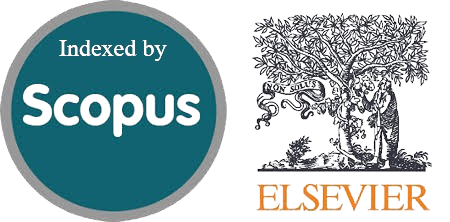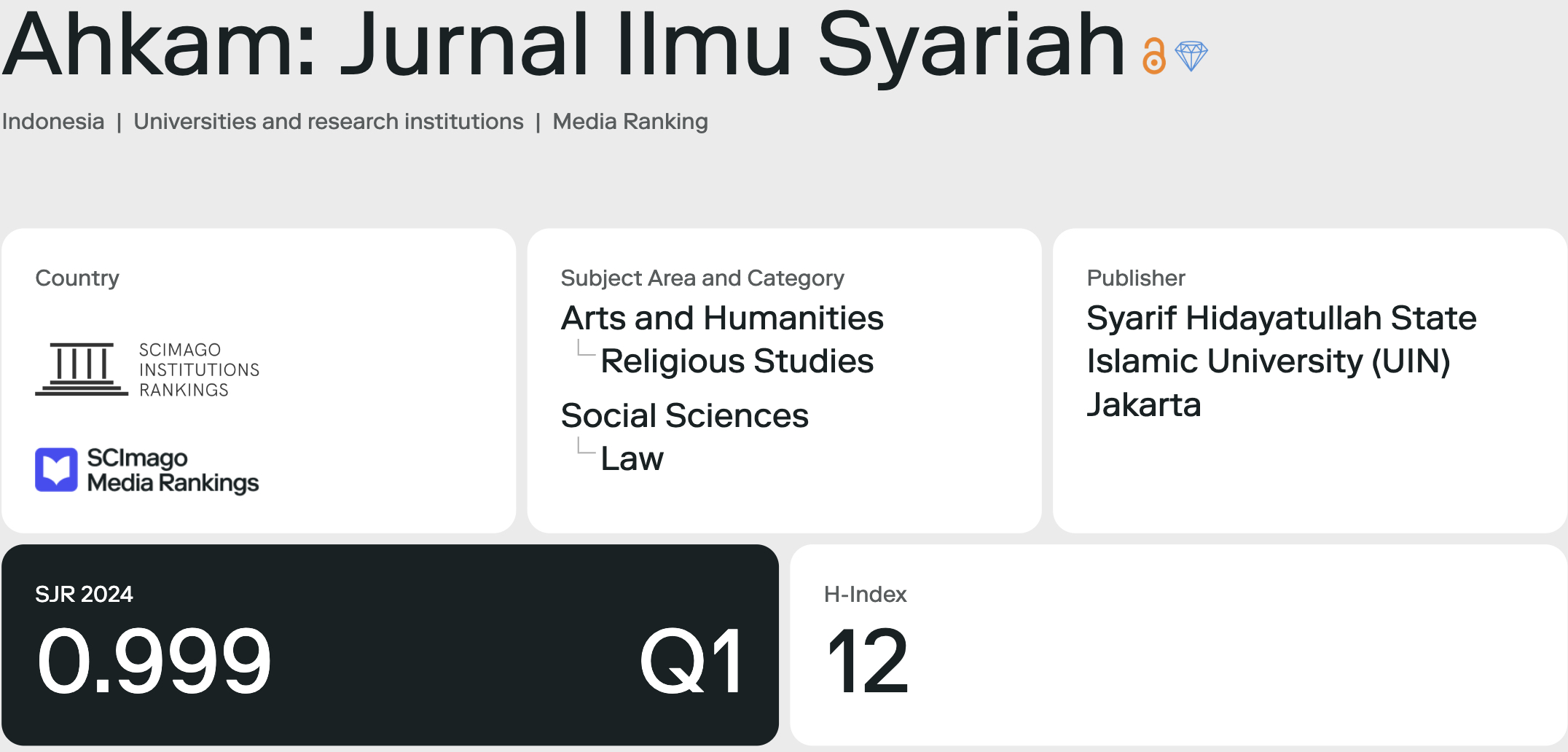Traditional Religious Authorities in New Media: Cariustadz.id Platform as An Alternative Cyber Fatwa and Da’wah Media among the Middle-Class Urban Muslims
DOI:
https://doi.org/10.15408/ajis.v21i1.20300Keywords:
Traditional Religious Authority, New Media, Cyber fatwa, Urban MuslimsAbstract
This study examines the recent developments of religious authorities among middle-class urban Muslims. It is constructed due to the emergence of new religious authorities in Indonesia after the collapse of the New Order and the response of traditional santri involving the use of new media technology. With a phenomenological approach, the study focuses on the Cariustadz.id platform as a Cyber Fatwa and Islamic preaching media developed by Pusat Studi Qur’an/PSQ (Center for Qur’an Studies) to respond to the trending pengajian (sermon) activities among urban Muslims, the majority of whom are transnational groups including Salafi and Jamaah Tabligh. The Cariustadz.id platform has actively played a part in accommodating their aspirations with various facilities and easy access through an information technology-based application (a new media).As a result, the study argues that the moderate Islam discourse offered by the Cariustadz.id platform is not a mainstream but an alternative to religious activities for middle-class urban Muslims. In addition, Cariustadz.id is a new media used for traditional religious authority to compete with new religious authority in religious fatwa and Islamic discourse in Indonesia. This study is significant to show that Cyber Fatwa and Islamic preaching in the form of new media can be used as a counter narrative for traditional religious authorities in dealing with the proliferation of the so called new religious authorities da’wah movement and Salafi and radical preaching movement in new media.
Abstrak:
Artikel ini mengkaji perkembangan terkini otoritas keagamaan kalangan kelas menengah Muslim perkotaan. Hal ini dilatarbelakangi oleh munculnya otoritas keagamaan baru di Indonesia pasca runtuhnya Orde Baru dan respons santri tradisional yang melibatkan penggunaan teknologi media baru. Dengan pendekatan fenomenologis, penelitian ini berfokus pada platform Cariustadz.id sebagai media fatwa siber dan dakwah Islam alternatif yang dikembangkan oleh PSQ (Pusat Studi Qur’an). Platform itu untuk merespons kegiatan pengajian yang sedang tren di kalangan Muslim perkotaan, yang mayoritas pesertanya adalah kelompok transnasional termasuk Salafi dan Jamaah Tabligh. Cariustadz.id berperan aktif dalam menampung aspirasi mereka dengan berbagai fasilitas dan kemudahan akses melalui aplikasi teknologi informasi.Penelitian ini menunjukkan bahwa wacana Islam mode yang ditawarkan oleh platform Cariustadz.id bukanlah mainstream, melainkan kegiatan keagamaan alternatif bagi Muslim perkotaan kelas menengah. Selain itu, Cariustadz.id merupakan media baru yang digunakan otoritas keagamaan tradisional untuk berkompetisi dengan otoritas keagamaan baru di bidang fatwa keagamaan dan wacana keislaman di Indonesia. Studi ini signifikan menunjukkan bahwa fatwa siber dan dakwah Islam dalam bentuk media baru dapat digunakan sebagai kontranarasi bagi otoritas agama tradisional dalam menghadapi menjamurnya apa yang disebut gerakan dakwah otoritas keagamaan baru dan gerakan dakwah Salafi dan radikal di media baru.
References
Akmaliah, W. (2020). The Demise of Moderate Islam: New media, contestation, and reclaiming religious authorities. Indonesian Journal of Islam and Muslim Societies, 10(1), 1–24. https://doi.org/10.18326/ijims.v10i1.1-24
Black, A., & Hosen, N. (2009). Fatwas: Their Role in Contemporary Secular Australia. Griffith Law Review, 18(2), 405–427. https://doi.org/10.1080/10383441.2009.10854648
Bunt, G. R. (2003). Islam in the digital age: E-jihad, online fatwas, and cyber Islamic environments. Pluto Press.
Caeiro, A. (2006). The Shifting Moral Universes of the Islamic Tradition of Ift?’: A Diachronic Study of Four Adab al-Fatw? Manuals. The Muslim World, 96(4), 661–685. https://doi.org/10.1111/j.1478-1913.2006.00152.x
Cari Ustadz | Aplikasi Terlengkap Untuk Mencari Ustadz. (t.t.). Diambil 1 November 2020, dari https://cariustadz.org/sejarah
Dakwah, K. (2017). Pedoman Dakwah Komis Dakwah MUI. https://mui.or.id/berita/8632/terbitkan-pedoman-dakwah-komisi-dakwah-mui-lahirkan-empat-terobosan/
Dewi, O. S. (2020a). Pengajian Selebriti Hijrah Kelas Menengah Muslim (2000-2019): Respons atas Dakwah Salafi dan Jamaah Tabligh. Sekolah Pascasarjana UIN Syarif Hidayatullah.
Dewi, O. S. (2020b). Pengajian Selebriti Hijrah Kelas Menengah Muslim (2000-2019): Respons atas Dakwah Salafi dan Jamaah Tabligh. Ph,D Dissertation, Sekolah Pascasarjana UIN Syarif Hidayatullah Jakarta.
Dimas. (n.d.). A Cariustadz.id Platform User and Mosque Administrator in Bintaro Area, South Tangerang [personal interview].
Eickelman, D. F., & Anderson, J. W. (2003). New Media in The Muslim World: The Emerging Public Sphere. IN: Indiana University Press.
Eickelman, D. F., & Piscatori, J. P. (2004). Muslim politics (2. paperback ed). Princeton Univ. Press.
Fadal, K. (2020). Kontra-Radikalisasi Agama Pusat Studi Al-Qur’an Jakarta. MUTAWATIR, 10(1), 48–73. https://doi.org/10.15642/mutawatir.2020.10.1.48-73
Gunawan, D. (n.d.). Cerita di Balik Kontroversi Sertifikasi Dai Kemenag—MUI. detiknews. Diambil 25 Oktober 2020, dari https://news.detik.com/berita/d-5168493/cerita-di-balik-kontroversi-sertifikasi-dai-kemenag---mui
Hamayotsu, K. (2013). The Limits of Civil Society in Democratic Indonesia: Media Freedom and Religious Intolerance. Journal of Contemporary Asia, 43(4), 658–677. https://doi.org/10.1080/00472336.2013.780471
Hamdani. (2020). New Religious Preacher in the Changing Religious Authority: The Offline and Online Preacher of Ustadz Abdul Somad. Dalam N. Saat & A. N. Burhani (Ed.), The new Santri: Challenges to traditional religious authority in Indonesia (258–277). ISEAS Publishing.
Han, M. I. (2019). Dakwah Jalanan Kaum Muda: Dinamika Keagamaan Anak Muda Genk Motor dan Skateboard. Diandra Kreatif and Penerbit Omah ilmu.
Hasan, N. (2007). The Salafi Movement in Indonesia: Transnational Dynamics and Local Development. Comparative Studies of South Asia, Africa and the Middle East, 27(1), 83–94. https://doi.org/10.1215/1089201x-2006-045
Hasan, N. (2008). Laskar Jihad: Islam, Militansi dan Pencarian Identitas di Indonesia Pasca-Orde Baru. Pustaka LP3ES Indonesia & KITLV Jakarta.
Hasan, N. (2019). Tantangan Islam Politik dan Krisis Legitimasi Ulama. Dalam Ulama dan Negara-Bangsa: Membaca Masa Depan Islam Politik di Indonesia, (51). PusPIDeP.
Hidayatullah, Moch. S. (2017). The Sectarian Ideology of the Islamic Online Media in Indonesia. Insaniyat: Journal of Islam and Humanities, 1(2), 141–151. https://doi.org/10.15408/insaniyat.v1i2.5468
Hoesterey, J. B. (2008). 6. Marketing Morality: The Rise, Fall and Rebranding of Aa Gym (G. Fealy & S. White, Ed.; 95–112). ISEAS Publishing. https://doi.org/10.1355/9789812308528-010
Hooker, M. B. (2007). Indonesian Islam social change through contemporary fatāwā. Allen & Unwin.
Hosen, N. (2008). Online Fatwa in Indonesia: From Fatwa Shopping to Googling a Kiai. Dalam G. Fealy & S. White (Ed.), Expressing Islam (159–173). ISEAS Publishing. https://doi.org/10.1355/9789812308528-013
Howell, J. D. (2001). Sufism and the Indonesian Islamic Revival. The Journal of Asian Studies, 60(3), 701–729. https://doi.org/10.2307/2700107
Howell, J. D. (2013). ‘Calling’ and ‘Training’: Role Innovation and Religious De-differentiation in Commercialised Indonesian Islam. Journal of Contemporary Religion, 28(3), 401–419. https://doi.org/10.1080/13537903.2013.831650
Ibrahim, I., Prasojo, Z. H., & Sulaiman, S. (2019). Preventing Radicalism: Islamic Moderation and Revitalization in the Border. Wawasan: Jurnal Ilmiah Agama dan Sosial Budaya, 4(1), 1–15. https://doi.org/10.15575/jw.v4i1.4400
Illar, D. J. (2010). Cyber Fatwas and Classical Islamic Jurisprudence. Journal of Computer and Information Law, 27(4), 17.
Iqbal, A. M & Zulkifli (2016) Islamic Fundamentalism, Nation-State and Global Citizenship: The Case of Hizb ut-Tahrir. Indonesian Journal of Islam and Muslim Societies, 6(1), 35-61.https://doi.org/10.18326/ijims.v.6i1.35-61.
Jauhari, M. S., & Ghoni, A. (2020). The Level of People’s Obedience to MUI Fatwas (COVID-19, Bank Interest, and Interfaith Marriage). AHKAM : Jurnal Ilmu Syariah, 20(2). https://doi.org/10.15408/ajis.v20i2.18685
Kailani, N., & Sunarwoto. (2019). Televangelisme Islam dalam Landskap Otiritas Keagamaan Baru. Dalam N. Hasan (Ed.), Ulama dan Negara-Bangsa: Membaca Masa Depan Islam Politik di Indonesia (179–206). PusPIDeP.
Kassem, M. (2014). Fatwa in the Era of Globalization. In Ifta’ and Fatwa in the Muslim World and the West. The International Institute of Islamic Thought.
Krämer, G., & Schmidtke, S. (Ed.). (2006). Speaking for Islam: Religious authorities in Muslim societies. Brill.
Nico J. G. Kaptein, & Laffan, M. (2005). Theme Issue: Fatwas in Indonesia. Islamic Law and Society, 12(1), 1–8. JSTOR.
Norshahril Saat, & Burhani, A. N. (2020). The New Santri: Challenges to Traditional Religious Authority in Indonesia. https://www.cambridge.org/core/product/identifier/9789814881487/type/BOOK
Okezone. (2018, Mei 22). 5 Ustaz Kondang yang Tak Masuk Daftar 200 Mubalig Versi Kemenag, Nomor 1 Ustaz Abdul Somad: Okezone Nasional. https://nasional.okezone.com/. https://nasional.okezone.com/read/2018/05/22/337/1901077/5-ustaz-kondang-yang-tak-masuk-daftar-200-mubalig-versi-kemenag-nomor-1-ustaz-abdul-somad
Pribadi, Y. (2020). Pop and “True” Islam in Urban Pengajian: The Making of Religious Authority. Dalam N. Saat & A. N. Burhani (Ed.), The new Santri: Challenges to traditional religious authority in Indonesia (213–238). ISEAS Publishing.
Rudnyckyj, D. (2009). Spiritual Economies: Islam and Neoliberalism in Contemporary Indonesia. Cultural Anthropology, 24(1), 104–141. https://doi.org/10.1111/j.1548-1360.2009.00028.x
Turner, B. S. (2007a). Religious Authority and the New Media. Theory, Culture & Society, 24(2), 117–134.
Watson, C. W. (2005). A Popular Indonesian Preacher: The Significance Of AA Gymnastiar. Journal of the Royal Anthropological Institute, 11(4), 773–792. https://doi.org/10.1111/j.1467-9655.2005.00261.x
Zaman, M. Q. (2002). The ulama in contemporary Islam: Custodians of change. Princeton University Press.
Zamhari, A., & Mustofa, I. (2020). The Popular Da’wah Movement In Urban Communities: The Role Of Hadrami Scholars’ Da’wah in Response to Religious Radicalism in Indonesia. Akademika, 24.
Zuhaili, W. (1986). Ushul al Fiqh al-Islamy (Vol. 2). Dar al-Fikr.
Zulkifli. (2013). The Ulama in Indonesia: Between Religious Authority and Symbolic Power. MIQOT: Jurnal Ilmu-Ilmu Keislaman, 37(1). https://doi.org/10.30821/miqot.v37i1.79
Zulkifli. (2018). Menuju Teori Praktik Ulama (Pertama). Haja Mandiri.








